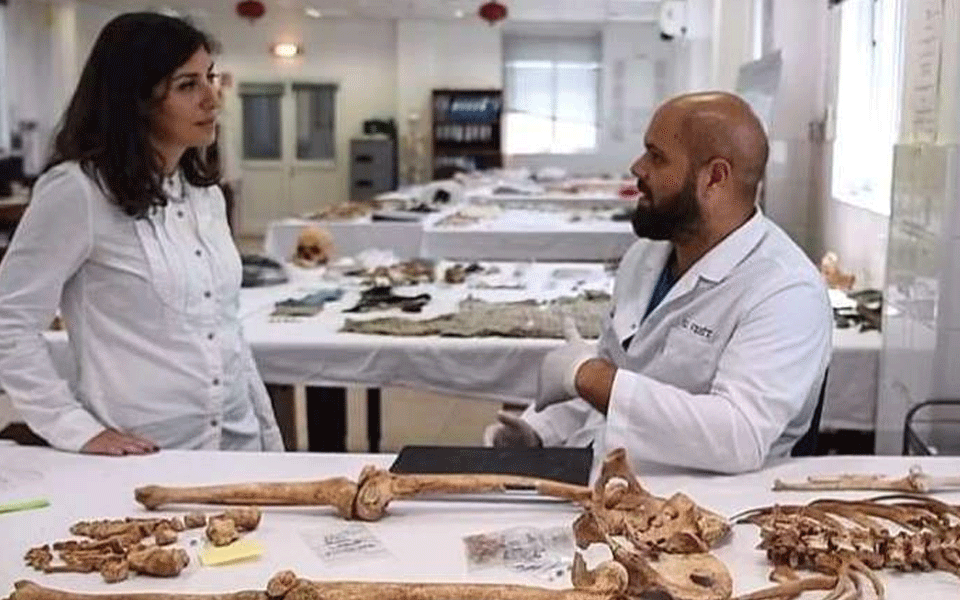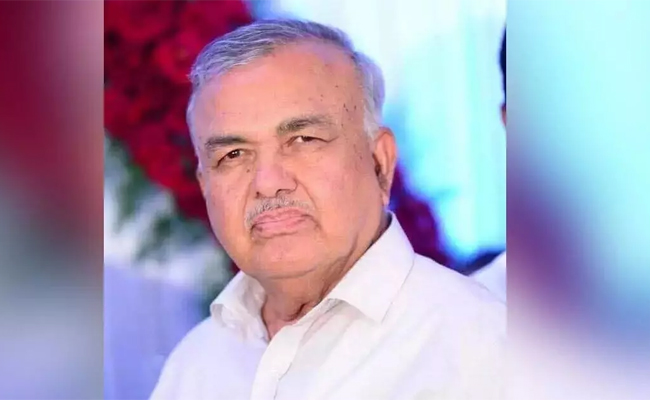Skeletal remains of a missing Turkish man, who was murdered over 40 years ago, were discovered after a fig tree grew from a seed in his stomach.
The man identified as Ahmet Hergune was killed during the conflict between Greek Cypriots and Turkish Cypriots in 1974. He had been taken into a cave with two others and a dynamite was thrown after them. The dynamite killed the three men and also blew a hole in the side of the cave which allowed light to seep in. This, in turn, allowed the fig tree to grow from the Hergune's body, according to reports in MSN.
In 2011, the tree was spotted by a researcher who became curious to know how the tree grew in the cave, especially in a mountainous area. While carrying out his research and digging around the tree, the researcher found a human body underneath. On digging further, police recovered a total of three bodies.
Hergune's 87-year-old sister, Munur Herguner, said: "We used to live in a village with a population of 4,000, half Greek, half Turkish. In 1974, the disturbances began. My brother Ahmet joined the Turkish Resistance Organization. On June 10, the Greeks took him away."
Hergune was believed to have had eaten the fig, and blood samples from Munur's family matched DNA fragments. "The fig remnants in my brother's stomach grew into a tree as the sun crept into the cave through the hole made by the explosion. They found my brother thanks to that fig tree," Munur added.
Launched in 1981, the Committee on Missing Persons in Cyprus has been searching for 2,002 people who disappeared on the Mediterranean island between 1963 and 1974.
Courtesy: www.khaleejtimes.com
Let the Truth be known. If you read VB and like VB, please be a VB Supporter and Help us deliver the Truth to one and all.
Guwahati (PTI): The opposition Congress on Tuesday took the lead in announcing its first list of 42 candidates for the upcoming assembly elections in Assam, with it comprising both sitting MLAs and former ministers, and also new faces, including sons of three prominent politicians.
The party's chief ministerial candidate and state president Gaurav Gogoi will contest from the prestigious Jorhat assembly constituency, currently held by BJP's Hitendra Nath Goswami.
The Deputy Leader of the Opposition in the Lok Sabha will make his first electoral foray for the assembly.
ALSO READ: Loan recovery agent in Bengaluru murdered for reportedly stepping on accused’s foot
Gogoi is currently the party MP from the Jorhat parliamentary constituency and previously represented Kaliabor twice before it was reconstituted during the delimitation exercise in the state.
The leader of the opposition in the state assembly, Debabrata Saikia, will contest from the family stronghold of Nazira, which he has represented since 2016. His father, former chief minister Hiteswar Saikia, and his mother, Hemoprava Saikia, previously represented the constituency.
Three sitting MLAs -- Nandita Das from Hajo-Sualkuchi, Diganta Barman from Barkhetry and Nurul Huda from Rupohihat -- have also been included in the list.
Das, a two-time MLA, had earlier contested from Boko but following the delimitation exercise in the state, she has been shifted to Hajo-Sualkuchi while Barman and Huda will contest from the same seats they represented in the current assembly.
Former minister and state Congress president Ripun Bora will contest from Barchalla while another former minister, Ajit Singh, will contest from Udharbond constituency in Barak Valley.
Former minister and Deputy Speaker Pranati Phukan, a four-time MLA till 2016, will contest from Naharkatia in Upper Assam.
Tanzil Hussain, son of Dhubri MP Rakibul Hussain, will contest from Samaguri where he had lost to BJP's Diplu Ranjan Sarmah in the 2024 by-elections which was necessitated following the election of the senior Hussain to Lok Sabha.
Prateek Bordoloi, son of Nagaon MP Prodyut Bordoloi, will contest the Margherita seat which was represented by his father thrice since 2001.
Former five-time MP and prominent tea tribe leader Paban Singh Ghatowar's son Pranjal Ghatowar will contest from the Chabua-Lahowal seat.
Assam Pradesh Mahila Congress president Mira Borthakur, who had unsuccessfully contested the last parliamentary polls from Gauhati, has been given the ticket for the prestigious Dispur constituency.
Former BJP MLA Ashok Sarma, who was denied ticket by the ruling party in 2021 and went on to join the Congress in 2024, will contest from his previous Nalbari seat.
Another former BJP MLA and Deputy Speaker Aminul Haque Laskar, who joined the Congress in 2024, will contest from Sonai constituency in Barak Valley.
Former AGP MLA Satyabrat Kalita, who joined the Congress in September 2025, will contest from Kamalpur seat.
Other prominent faces in the list include former Congress MLAs Durga Bhumij from Doomdooma, Binanda Kumar Saikia from Sipahjhar and Bubul Das from Jagiroad (SC) constituency.
The Congress is a leading part of the unified opposition alliance, 'Asom Sonmilito Morcha', formed to challenge the ruling BJP, and has entered into seat-sharing arrangements with the Assam Jatiya Parishad (AJP) and the Left, but is yet to finalise it with Raijor Dal.
Presently, the ruling BJP's strength in the 126-member assembly is 64, while its allies AGP has nine MLAs, UPPL has seven and BPF has three members.
In the opposition camp, the Congress has 26 MLAs, AIUDF has 15 members and CPI(M) has one MLA. There is an Independent legislator as well.





